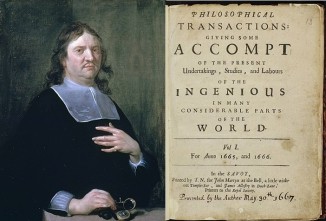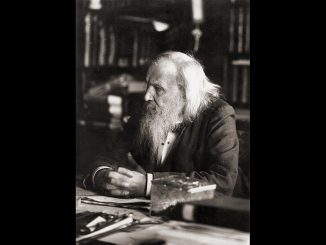Happy 70th Birthday to Jeff Greenwald, traveler, award-winning author, monologist, and photographer. Believing that “every time I set off on a journey, I feel like God has thrown me the keys to her car,” Greenwald is hailed as an internet pioneer for creating the first international “travel blog” five years before the term was coined on the World Wide Web. Extensive traveling across Asia, with a particular fondness for the Himalayan lands of Tibet and Nepal, he published two books on the subject which won him the Lowell Thomas Gold Award for best travel book. READ more about this pioneering pioneer… (1954)

His book Mr. Raja’s Neighborhood: Letters from Nepal, was born from Greenwald’s first trip to Asia in 1979, where he was engaged in designing urban playgrounds for UNICEF and the Nepal Children’s Organization. Four years later, his travels in Nepal and Tibet would inspire Shopping for Buddhas, first published by Harper and Row in 1990.
As journalism opened itself up to the internet, Greenwald was at the tip of the spear, writing real-time dispatches as he circled the globe for GNN: no, not the Good News Network, but the Global Network Navigator.
Using his many travel adventures as material, Greenwald developed a one-man show in 2003 called Strange Travel Suggestions. The show, which premiered at The Marsh in San Francisco, is an improvised monologue whose content is determined by the spin of an on-stage “wheel of fortune”.
MORE Good News on this Date:
- The city of Toronto was incorporated (1834)
- Israeli troops withdrew from the Sinai Peninsula (1957)
- Ghana (Gold Coast) gained its Independence from Britain (1957)
- Cassius Clay was given the name Muhammad Ali (meaning beloved of Allah) by Elijah Muhammad and went on to become one of the most beloved public figures around the world (1964)
- Walter Cronkite signed off after 19 years as anchor of The CBS Evening News (1981)
- Britain’s Queen Elizabeth II launched the first official royal Web site (1997)
359 years ago today, the longest-running scientific journal in the world published its first edition under the stuffy, yet wonderfully dated name Philosophical Transactions: Giving some Account of the present Undertakings, Studies, and Labours of the Ingenious in many considerable parts of the World. In a trick of the English, the word ‘philosophical’ referred to a study called ‘natural philosophy’ which would be what we generally term ‘science’ today.

The journal was dreamt of and compiled by Henry Oldenburg, a German theologian, diplomat, and natural philosopher who is credited as being an intellectual titan of his day. The idea to print a collection of scientific works came to Oldenburg as “one of these philosophical commonplace books.”
A commonplace book was something most literate people had in their house, and was essentially a large diary for including profound snippets from books they read—a fantastic tradition that helps explain why letter-writing throughout the Enlightenment through to the Industrial Revolution is so saturated with quotes from famous authors, scientists, poets, and philosophers.
Subsequent publications of the Philosophical Transactions developed all the common best practices of science writing today, including dissemination, peer review, registration, and archiving.
Issue 1 contained such articles as an account of the improvement of optic glasses, the first report on the Great Red Spot of Jupiter, a prediction on the motion of a recent comet (probably an Oort cloud object), a review of Robert Boyle’s Experimental History of Cold, Robert Boyle’s own report of a deformed calf, “A report of a peculiar lead-ore from Germany, and the use thereof,” “Of the New American Whale-Fishing about the Bermudas”, and “A Narrative Concerning the Success of Pendulum-Watches at Sea for the Longitudes”. (1665)
On this day 97 years ago, Gabriel García Márquez, the Colombian writer considered one of the most significant authors of the 20th century, was born in Aracataca. Starting out as a journalist, he wrote many acclaimed non-fiction works and short stories, but is best known for his novels, such as Love in the Time of Cholera, which was also made into a film. He was awarded the 1982 Nobel Prize in Literature and became notable for popularizing a literary style known as magic realism, which uses magical elements in otherwise ordinary situations. Other popular books, which often explored the theme of solitude, include The Autumn of the Patriarch, and One Hundred Years of Solitude, which was published in 1967 and sold over 30 million copies.

As a young boy, García Márquez was raised principally by his grandparents, who were both excellent storytellers. His grandfather, a soldier, would tell him “You can’t imagine how much a dead man weighs,” explaining the psychological burden of taking someone’s life. His grandmother treated “the extraordinary as something perfectly natural.” The house was filled with stories of ghosts and premonitions, omens and portents, all of which were studiously ignored by her husband. According to García Márquez, she was “the source of the magical, superstitious and supernatural view of reality”.
Upon García Márquez’s death in April 2014, Juan Manuel Santos, the president of Colombia, called him “the greatest Colombian who ever lived.” By saying this, Santos is suggesting he was greater than the nation’s founder Simon Bolivar, which would be like saying an American author supersedes George Washington, Thomas Jefferson, and James Maddison in terms of greatness if these Founding Fathers were all rolled into one man. (1927)

On this day 155 years ago, Russian chemist Dimitri Mendeleev made a formal presentation to the Russian Chemical Society, titled The Dependence between the Properties of the Atomic Weights of the Elements, thus creating the periodic table.
He formulated the periodic law as a dependence of chemical properties on atomic mass, and then by valence. Because not all elements were then known, there were gaps in his periodic table, and Mendeleev successfully used the periodic law to predict the properties of some of the missing elements. Only one major change was needed from Mendeleev’s table, the shifting of actinides from D-block elements to F-block elements, along with a few minor tweaks thanks to the help of quantum mechanics, to create the one we know of today.
He recounted, as many scientists have done, that the vision of his crowning discovery came to him in a dream: “I saw in a dream a table where all elements fell into place as required. Awakening, I immediately wrote it down on a piece of paper, only in one place did a correction later seem necessary.” (1869)
Happy Birthday to musician and singer-songwriter David Gilmour, who turns 78 years old.

In a career spanning more than 50 years, he is best known for his work as the guitarist and co-lead vocalist of the progressive rock band Pink Floyd. It was estimated that by 2012 the group had sold over 250 million records worldwide. Rolling Stone magazine ranked him number 14 in their list of the greatest guitarists of all time.
As a young teen he met bassist Roger Waters and guitarist Syd Barrett, who, in 1967, asked him to join their band, Pink Floyd. In 1973, after Gilmour replaced Barrett as guitarist and co-songwriter, the group used advanced recording techniques, like multitrack recording, tape loops, and synthesizers to create the epic Dark Side of the Moon, one of the most successful albums of all time.
WATCH him perform a gorgeous version of the ultimate ballad of angst, Wish You Were Here… (1946)
549 years ago today, the artist known simply as Michelangelo was born.

The Italian Renaissance sculptor, painter, architect, poet, and engineer created iconic works that rank among the most famous in the world: the sculptures Pietà and David—both finished before he was thirty; the painted ceiling of the Sistine Chapel in the Vatican; and, before his death at age 74, the architecture of St. Peter’s Basilica, with its mighty dome. His versatility made him a Renaissance man, and some scholars have described Michelangelo as the greatest artist of all time. (1475)

And Happy Birthday to actor, writer, and director Rob Reiner who turns 77 today. He first came to national prominence in the role of Michael Stivic on television’s All in the Family. As a film director, he earned an Oscar nomination for his military courtroom drama, A Few Good Men, and won acclaim for When Harry Met Sally, Princess Bride, Spinal Tap, First Wives Club, and The Bucket List, to name just a few. WATCH the scene when Archie Bunker first meets Michael… (1947)
SHARE the Music, Memories, and Milestones…




















